
After graduating from Cambridge, Marco Miglio took a long, hard look at the opportunities open to him in the commercial world – and decided to go in another direction altogether.
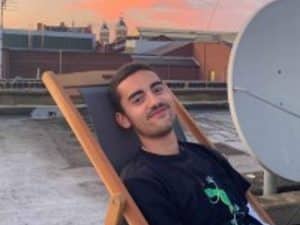 He recently began a new post working for an NHS Crisis Resolution Team, which involves directly helping people suffering from severe mental health problems.
He recently began a new post working for an NHS Crisis Resolution Team, which involves directly helping people suffering from severe mental health problems.
Marco (OE 2007-2014) says: “Every day feels like an opportunity to make an impact on someone and I wake up looking forward to going into work, which I never thought could be possible.”
He first became interested in this area while studying for his undergraduate degree in Human, Social and Political Sciences at Cambridge and taking a few psychology modules. After he graduated and came back to London, he took a Master’s degree in Social and Cultural Psychology at LSE.
“Whilst doing my Master’s, I did short stints at big consulting companies such as Bain and PwC – and found corporate culture unfulfilling. Many of my friends from university were contemplating careers in law, banking and consultancy, and none of these felt like a natural fit for me.
“I felt so lucky to have received some of the best education in the country and wanted to utilise this to empower and benefit those most in need, and so I tried to get as far away from corporate life as possible and found a job in mental health.
“My first job in mental health was working for a charity for a year-and-a-half that runs care homes for men with criminal histories who also have mental health problems. This job felt like a perfect fit for me, and over time, I realised that the work that came most naturally to me was dealing with acutely unwell, violent and risky patients.”
His new post, as an assistant practitioner within Camden and Islington NHS Foundation Trust’s Crisis Resolution Team, felt “like a natural progression” from his previous role.
Marco explained a little about what his job entails: “Each NHS trust commissions multiple crisis teams, and at the minute I work in the North Camden Crisis Team, based in Belsize Park. The crisis team work with some of the most acutely unwell people in the local area: usually our caseload tends to have up to 40 people, most of whom are actively psychotic and suicidal.
“My working week is split between conducting home visits to our caseload, and working on the Crisis Team Single Point of Access phone lines. When I’m out doing home visits, a major part of this is to assess the risk levels of our patients (which is usually very high and so needs to be monitored in case it changes and they become too risky to keep themselves safe), provide brief supportive counselling, supervising their medication and helping them get referred to local mental health services offered by the NHS or charities.
“Unfortunately, sometimes our patients are so suicidal that they are beyond our remit and we have to push for them to be taken to A&E or to be sectioned for their own wellbeing.
“The remainder of the week I work in what is called the Single Point of Access phone line, in which we triage and accept referrals from patients, their GPs, family members, and the police. We take these clients on and then work with them to get them out of their mental health crises.
“A small part of this role is de-escalating our distressed patients and effectively ‘talking them off the ledge’, as it were, to try to keep them safe until our team is able to work with them. Ending a phone call with a patient who initially phoned saying they were about to take their own life but now says that they feel able to keep themselves safe makes me truly appreciate the importance of the work that we do, and despite how emotionally demanding it can be, I know it’s one of the most necessary jobs, especially in a time when mental illness affects more of us than ever before.
“Whilst working in mental health is incredibly rewarding, it’s not a job I’d recommend to everyone. (All the teams I’ve worked with so far have joked that the job is so stressful and draining that you’d have to be slightly mad yourself to want to work in the sector.) Rotating shift patterns are exhausting; verbal abuse and death threats from patients are extremely common; I’ve seen colleagues get attacked, and have been in quite a few sticky situations myself. That said, I wouldn’t have it any other way and feel lucky to have a job that I genuinely enjoy.
“In terms of my long-term goals, I’m thinking of becoming a child and adolescent psychotherapist. Most of my work so far has been with severely unwell people, and in future I’d really like to start working with patients at the opposite end of the spectrum, who are experiencing their first symptoms of mental illness and to try and help them explore the reasons behind these symptoms and work with them to help them recover before they develop chronic mental illnesses.”
Marco spoke of the important role fellow QE alumni continue to play in his life. “Given the intense nature of the job and how understaffed and overworked NHS staff are, having a good support network outside of work has been really important in maintaining my own wellbeing.
“I’m extremely lucky to have such a supportive network of family and friends around me, some of whom are Old Elizabethans. There are a group of about ten of us who still see each other most weeks, and we go on holiday every summer, and it has been a privilege to remain so close to them and watch them go into jobs where they’re making a difference.”

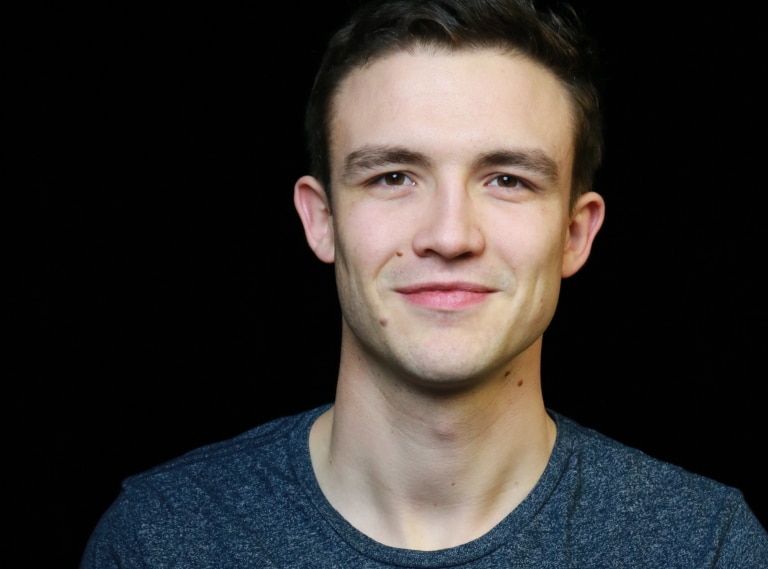
 “After two years working across various industrial and financial services clients, I moved to do the same role at Amazon, ultimately specialising in finding and convincing some of the best technical minds around the world to build some of the largest distributed technical systems in the world, and solve some of the hardest AI/ML challenges across Amazon Retail, Amazon Prime Video, Alexa, Amazon Web Services (AWS), and even Amazon’s Operations business.
“After two years working across various industrial and financial services clients, I moved to do the same role at Amazon, ultimately specialising in finding and convincing some of the best technical minds around the world to build some of the largest distributed technical systems in the world, and solve some of the hardest AI/ML challenges across Amazon Retail, Amazon Prime Video, Alexa, Amazon Web Services (AWS), and even Amazon’s Operations business. Among highlights from earlier in his career he would include working on the process to appoint the new Chairman of the Government-owned Royal Bank of Scotland. Another was rebuilding the Prime Video technical leadership team, which last year launched live-streaming of the Premiership in the UK.
Among highlights from earlier in his career he would include working on the process to appoint the new Chairman of the Government-owned Royal Bank of Scotland. Another was rebuilding the Prime Video technical leadership team, which last year launched live-streaming of the Premiership in the UK.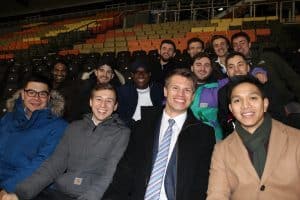 He remains close friends with a group of OEs – “essentially everyone you see in this picture” [right], taken at Allianz Park, home of Saracens, for the QE First XV’s match against Haberdashers’ Aske’s Boys’ School in 2017. Old Elizabethans pictured are top row, left, to bottom right: Alex Grethe, Jake, Anton Bridge, Ioannis Loupas (all 2004-2011); Anoop Raghaven and Max Hassell, (both 2002–2009); Alvin Bombo (2002–2007); Gideon Levitt (2004–2011); Aaron Levitt (2002–2009); Matteo Yoon, Adam Kuo, Alex Goring (all 2003–2010), and Francis Vu (2000–2008).
He remains close friends with a group of OEs – “essentially everyone you see in this picture” [right], taken at Allianz Park, home of Saracens, for the QE First XV’s match against Haberdashers’ Aske’s Boys’ School in 2017. Old Elizabethans pictured are top row, left, to bottom right: Alex Grethe, Jake, Anton Bridge, Ioannis Loupas (all 2004-2011); Anoop Raghaven and Max Hassell, (both 2002–2009); Alvin Bombo (2002–2007); Gideon Levitt (2004–2011); Aaron Levitt (2002–2009); Matteo Yoon, Adam Kuo, Alex Goring (all 2003–2010), and Francis Vu (2000–2008).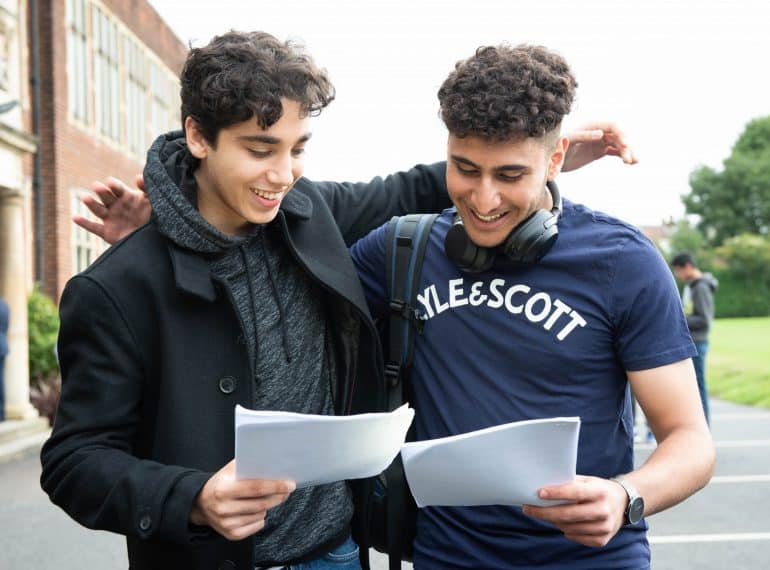
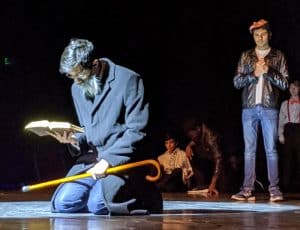 In fact, Parent Power revealed that not only were we the top state school, but were among a mere handful of top-performing schools of any stripe, selective or comprehensive, state or fee-paying. Nationwide, just four independent schools matched QE’s 95.7% figure for the proportion of A-levels passed at A*-B. Remarkable as our boys’ performance this summer certainly was, there is a further aspect that is not apparent from the league tables, and that is the extraordinary long-term consistency in our A-level results: 2019 was the 14th consecutive year in which the A*-B figure has remained above the 95% threshold.
In fact, Parent Power revealed that not only were we the top state school, but were among a mere handful of top-performing schools of any stripe, selective or comprehensive, state or fee-paying. Nationwide, just four independent schools matched QE’s 95.7% figure for the proportion of A-levels passed at A*-B. Remarkable as our boys’ performance this summer certainly was, there is a further aspect that is not apparent from the league tables, and that is the extraordinary long-term consistency in our A-level results: 2019 was the 14th consecutive year in which the A*-B figure has remained above the 95% threshold.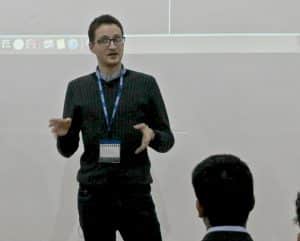 This has been a busy term for Music, and for the arts in general, with a full programme of concerts and performances. Sergio Ronchetti (OE 2004-2011), who is a freelance composer and sound designer enjoying success in the gaming sector, visited to deliver a careers lecture to senior boys. After leaving school, Sergio first worked for four years as a professional musician, only then going to Goldsmiths, where he took a First in Music.
This has been a busy term for Music, and for the arts in general, with a full programme of concerts and performances. Sergio Ronchetti (OE 2004-2011), who is a freelance composer and sound designer enjoying success in the gaming sector, visited to deliver a careers lecture to senior boys. After leaving school, Sergio first worked for four years as a professional musician, only then going to Goldsmiths, where he took a First in Music.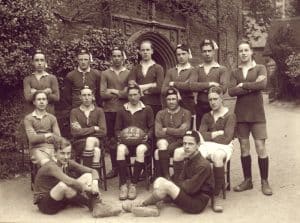 QE recently took on St Albans in a special match marking 100 years since the first encounter between the two schools. The game in 1919, which QE won, was St Albans’ very first fixture, while QE had itself only been playing the sport for a few years. At the centenary match, which St Albans won 36-19, I presented St Albans with this photo (right) of the Elizabethan team from the following season, 1920-21, the earliest rugby team photo that either school possesses.
QE recently took on St Albans in a special match marking 100 years since the first encounter between the two schools. The game in 1919, which QE won, was St Albans’ very first fixture, while QE had itself only been playing the sport for a few years. At the centenary match, which St Albans won 36-19, I presented St Albans with this photo (right) of the Elizabethan team from the following season, 1920-21, the earliest rugby team photo that either school possesses.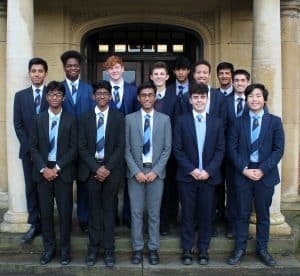 We are now in the last year of the current School plan, covering 2016–2020. It is still proving highly relevant; we continue to actively pursue its aims. For example, it was with Enhancing future prospects in mind – one of the plan’s four priority areas – that we launched our inaugural university mock interview evening, which was supported by a considerable number of alumni.
We are now in the last year of the current School plan, covering 2016–2020. It is still proving highly relevant; we continue to actively pursue its aims. For example, it was with Enhancing future prospects in mind – one of the plan’s four priority areas – that we launched our inaugural university mock interview evening, which was supported by a considerable number of alumni.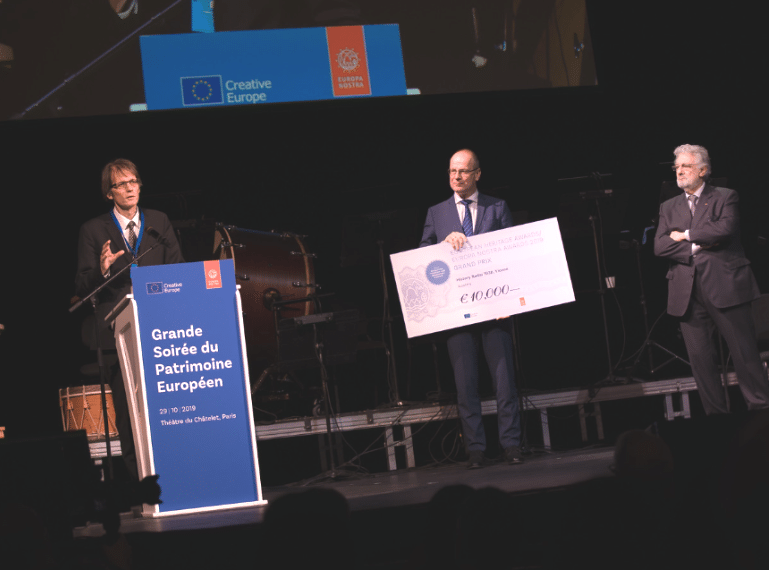
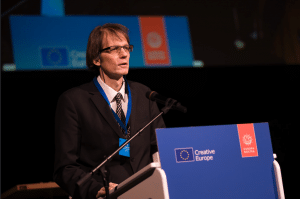 He led a team of filmmakers, historians and programmers involved in the project, which reached thousands of users via the internet, radio, television, and mobile phones, as well as through analogue media such as postcards, lectures, and print. In addition, it was the first digital exhibition on the website of the new Austrian Museum of History in Vienna.
He led a team of filmmakers, historians and programmers involved in the project, which reached thousands of users via the internet, radio, television, and mobile phones, as well as through analogue media such as postcards, lectures, and print. In addition, it was the first digital exhibition on the website of the new Austrian Museum of History in Vienna. Following the success of the project during the 80th anniversary period last year, it was announced this year that it had won the European Heritage Award/Europa Nostra Award in the Education, Training and Awareness-Raising category. The project was one of only seven to be named as one of the awards’ Grand Prix.
Following the success of the project during the 80th anniversary period last year, it was announced this year that it had won the European Heritage Award/Europa Nostra Award in the Education, Training and Awareness-Raising category. The project was one of only seven to be named as one of the awards’ Grand Prix.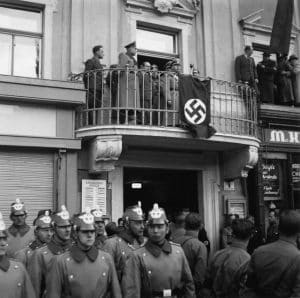 “This project has used innovative media to cast new light on pivotal historical moments in which crucial political decisions were taken. Curiosity was the driving force that provoked this historical storytelling, evoking the collective memory of eyewitnesses. The project’s pioneering technology allows for the constructive mediation of historical events.”
“This project has used innovative media to cast new light on pivotal historical moments in which crucial political decisions were taken. Curiosity was the driving force that provoked this historical storytelling, evoking the collective memory of eyewitnesses. The project’s pioneering technology allows for the constructive mediation of historical events.”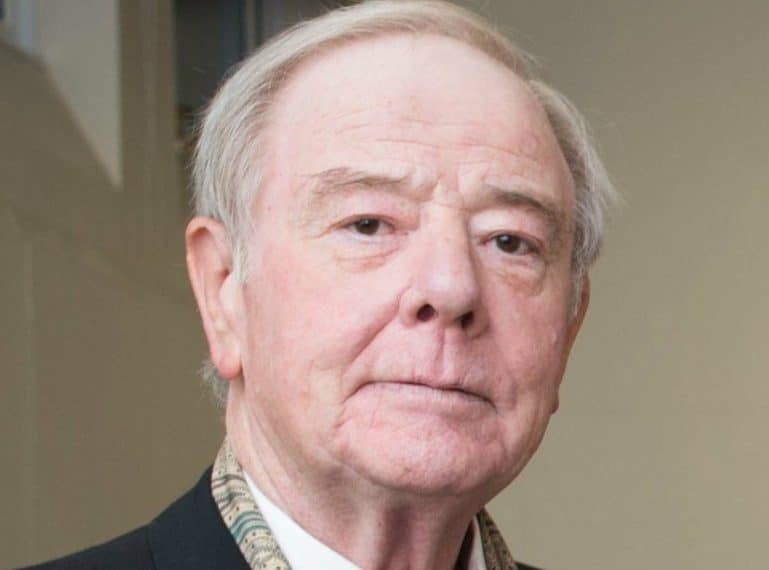
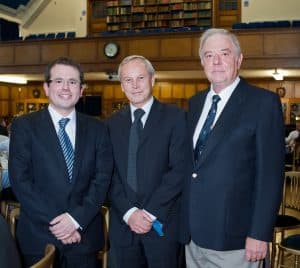 The School is planning to celebrate his life and contribution by hosting a commemorative event on Saturday 21st March 2020, to which all alumni are welcome. Further details will follow in the New Year, but if you are interested in attending, please click the button now to let us know by email – remembering to include your full name.
The School is planning to celebrate his life and contribution by hosting a commemorative event on Saturday 21st March 2020, to which all alumni are welcome. Further details will follow in the New Year, but if you are interested in attending, please click the button now to let us know by email – remembering to include your full name.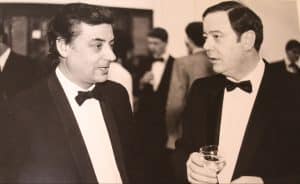 Mr Harris was appointed in October 1983, having taught for ten years at a tough school in Croydon and then at Samuel Whitbread Community College in Bedfordshire, where he was deputy head.
Mr Harris was appointed in October 1983, having taught for ten years at a tough school in Croydon and then at Samuel Whitbread Community College in Bedfordshire, where he was deputy head.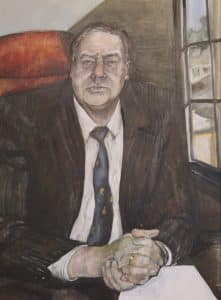 He took a holistic approach to the transformation of the School, combining vision and drive with clarity of thought, a willingness to try new ideas and considerable attention to detail. While there was certainly a focus on teaching and monitoring of performance, ostensibly smaller matters were not neglected, either: uniform policy was, for example, properly enforced, and the School campus was better maintained, with shrubs and flowers planted.
He took a holistic approach to the transformation of the School, combining vision and drive with clarity of thought, a willingness to try new ideas and considerable attention to detail. While there was certainly a focus on teaching and monitoring of performance, ostensibly smaller matters were not neglected, either: uniform policy was, for example, properly enforced, and the School campus was better maintained, with shrubs and flowers planted.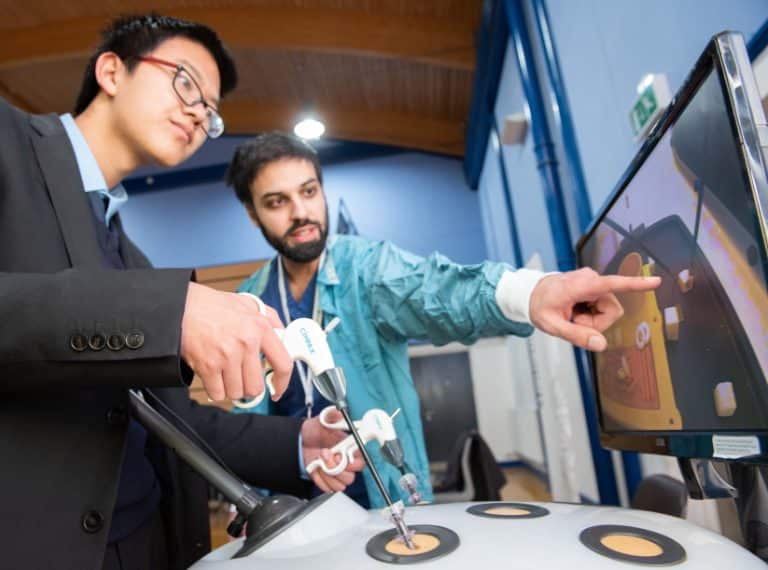
 Representatives from 35 different companies and organisations, featuring a good mix of alumni and other visitors, met boys and their parents as Year 11 were starting to consider their future career paths.
Representatives from 35 different companies and organisations, featuring a good mix of alumni and other visitors, met boys and their parents as Year 11 were starting to consider their future career paths. The main Careers Convention was held in the Shearly Hall, while the nine talks – several of which were repeated three times during the course of the evening – were delivered in classrooms. The talks included popular career areas, such as Dr Nirmal Wilwaraarachchi (OE 1996-2002) on dentistry and Joseph Vinson (OE 2007-2013) on Getting a job in Tech.
The main Careers Convention was held in the Shearly Hall, while the nine talks – several of which were repeated three times during the course of the evening – were delivered in classrooms. The talks included popular career areas, such as Dr Nirmal Wilwaraarachchi (OE 1996-2002) on dentistry and Joseph Vinson (OE 2007-2013) on Getting a job in Tech.